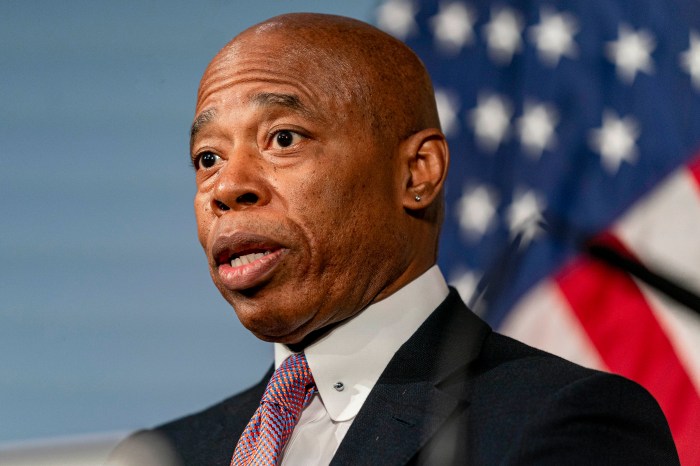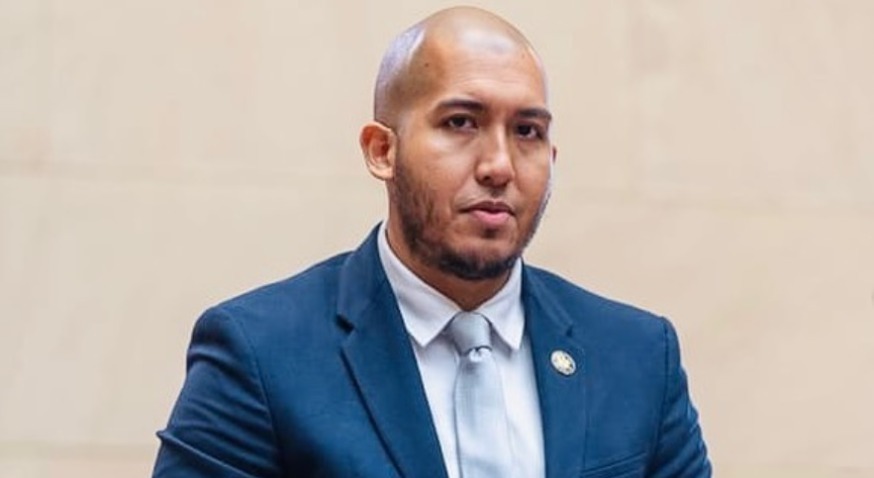
BY JACKSON CHEN | City Councilmember Mark Levine, whose District 7 runs up the West Side from 96th Street to Washington Heights, is working to gather community support for a measure that would establish a right to legal counsel in the city’s housing court. On October 12, he visited Community Board 7, which overlaps with the southern portion of his district, to discuss the progress he’s made among his colleagues getting commitments on Intro 214, which was introduced in March 2014.
Co-sponsored by 38 other Council members, Intro 214 would provide free legal counsel to low-income tenants who face evictions or other legal problems in housing court.
“If there’s anyone facing a life-altering judgment, they must have legal counsel in this arena,” Levine said. “But for tenants, the case is particularly strong.”
The Council member pointed to the huge discrepancy between the 10 percent of tenants who come equipped with an attorney versus landlords, who are virtually always represented by their legal team. Many tenants reach the point where they have little choice left but to accept landlord demands that they vacate their home, Levine said.
“This is having terrible consequences for tenants that is feeding the two biggest crises that the city faces,” he said, “which is homelessness and the loss of affordable housing.”
With evictions being a common result of the court cases, many families wind up in homeless shelters and can cost the city upwards of $40,000 a year, according to Levine. And for some units where tenants are evicted, vacancy decontrol will take the unit out of the city’s rent regulation program.
Levine’s Intro 214 would provide $2,500 per case for an attorney in housing court in the hopes of avoiding the alternative of the city paying the costs of a homeless shelter. According to the city’s Independent Budget Office, Levine’s program could require an annual outlay of between $100 million and $203 million, an expenditure to be offset by reduced need for homeless services.
While Levine has found Intro 214’s reception mostly warm, critics are wary of how the program would prioritize tenant needs and structure the support it offers.
One lifelong Upper West Side resident on hand, Alex Medwedew, voiced concerns about the logistics of Intro 214.
“When you create some sort of initiative, you have to understand how it works, who’s in charge, who needs money,” Medwedew said. “All of that has to be worked out and it doesn’t look like it’s worked out with [Intro 214].
Medwedew also questioned why the bill has sat for more than 18 months on the shelf in the Council.
Intro 214 has not had its hearing yet in front of the Committee on Courts and Legal Services. With its 38 co-sponsors, Levine said the bill is practically guaranteed a hearing and is hoping for one this fall.
Impatient with the slow legislative process, Levine said he’s been working on the details of the infrastructure to sustain the program. On May 27, the City Council voted to create the Office of Civil Justice, which would operate similarly to the Mayor’s Office of Criminal Justice and would connect plaintiffs in civil cases with attorneys.
Levine noted Mayor Bill de Blasio’s agreement on September 28 to spend $12.3 million more on anti-eviction programs within the Human Resources Administration, bringing the city’s overall commitment to more than $60 million, but said he would continue pursuing increased funding for these programs. To translate greater resources into ensuring a legal right to counsel in housing court, the Council member is hoping increased public awareness of his effort will build community support.
Along with his efforts to recruit more Council members to co-sponsor his bill, Levine is working with the Right to Counsel NYC Coalition, made up of a variety of tenant organizations. Tyrone Stevens, the Council member’s director of communications, explained that the coalition is working with community boards around the city to build support.
After the October 12 meeting with Community Board 7, the members of its Housing Committee suggested a stipulation that landlords must foot the bill for a lost eviction case in housing court, which would reduce the upfront cost to the city. The committee was also interested in seeing some mechanism to facilitate city agencies’ ability to step in prior to an eviction notice going out from a landlord, to allow for less costly mediation.
In its initial vote, CB7 endorsed the Office of Civil Justice keeping track of data about the expected benefits and costs of guaranteeing a legal right to counsel, taking into account the savings from avoided homelessness. Nick Prigo, chair of CB7’s Housing Committee, said a more comprehensive resolution on Levine’s Intro 214 would probably be voted on during the full board meeting in early November.

















